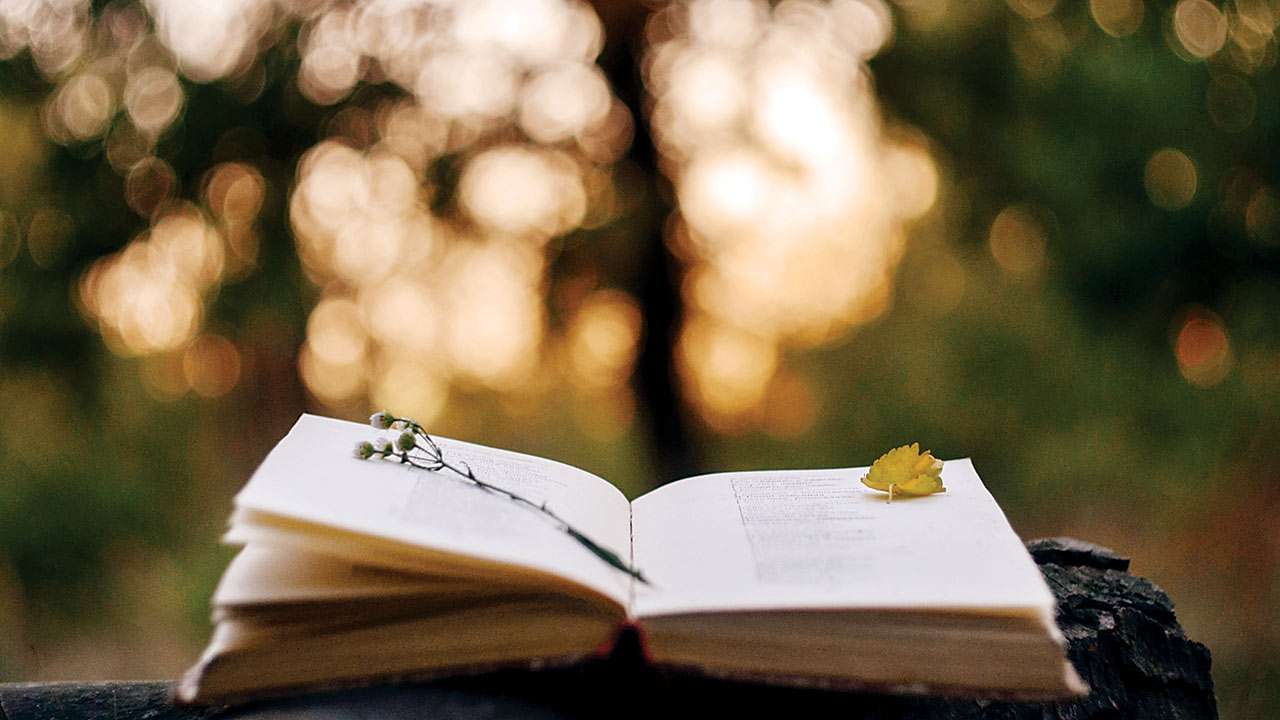
“To see a World in a Grain of Sand/And a Heaven in a Wild Flower/
Hold Infinity in the palm of your hand/
And Eternity in an hour”, (Auguries of Innocence, William Blake).
This world is not an easy place to live in, with all its strife and struggles. Whether to soothe our spirits, or to experience and love the world in its entirety, poetry adds a lot of beauty and meaning to our over-committed, over-connected lives. It’s heartening to see what Blake can do with much less than 280 characters limited for a tweet.
It is also propitious that April is the official poetry month and is now celebrated around the world. National Poetry Month April was first introduced in 1996 and is organised by the Academy of American Poets every year as a way to increase awareness and appreciation of poetry in the United States. The movement has since then spread to the United Kingdom, Canada and the rest of the world. The event has taken off in a big way on social media platforms like Facebook, Twitter, and Instagram. Prompts are put up everyday and reams are written. It is then only apt to explore the role that poetry plays in the social and cultural spaces that we are a part of, while also studying the perspectives of some known poets.
In 1939, W H Auden had stated, “Poetry makes nothing happen”, (In Memory of W B Yeats). While it might seem Auden is relegating poetry to margins, making it seem like an elitist, exclusionist activity, he is in fact according it a higher function: poetry inhabits the real, throbbing spaces we believe in, live in, die in too. It doesn’t make things happen, it is the happening.
Bertolt Brecht, on the other hand hems it to a context when he writes: In the dark times/Will there also be singing? /Yes, there will also be singing/About the dark times. Poetry here brings into sharp focus the issues that are ironically thrown into irrelevance in the dark times — the natural, human, rational voices, crushed at the hands of fascism and intolerance. It is writing in relief on the walls of disorder
In the introduction to the book, Why I Write: New and Selected Poems by the renowned poet, K. Satchidanandan, he remarks that he writes poetry to escape the “vile ordinariness of the tiringly humdrum everyday world”. In one of his poems, he writes: My grandmother dried up, burst / Her seeds flew out of the windows / The sun came and the rain one seedling grew up into a tree / Whose lusts bore me / How can I help writing poems / About monkeys with teeth of gold, (Granny)
Patterns can at times be soothing and a cause for pleasure. A lot of poets have celebrated the ordinary and the quotidian in modern poetry, Jane Kenyon being one such. Her poetry is simple, sparse yet emotionally resonant.
Remembered for her stoic portraits of domestic and rural life, in one of these kinds of portrayals that ends in an insight, Kenyon writes:
I washed a load of clothes /and hung them out to dry/Then I went up to town and busied myself all day/The sleeve of your best shirt /rose ceremonious/when I drove in; our night- clothes twined and untwined in /a little gust of wind. (Alone for a week)
Poetry, though, is much more than words strewn together. Poets can be seen as more earnest than prose writers for they cannot fabricate things, only feel and replicate them in the rhythm of their words. It is a good idea to liberate ourselves from the syndrome of idealising poetry, and recognise it as a power intertwined with the history, politics and cartography of its times. It is no more universal than histories and myths are universal. Neither is it a healing ointment to be applied to our scars and wounds.
Great poetry has the power to start a fire in our minds, to ignite it in imperceptible ways. You may pick up Mary Oliver, Plath, Wordsworth, Rumi, Neruda or Ghalib or Faiz — suddenly you find yourself blown into a world full of awe, terror, wonder, marvel, deep sorrow, and joy. The strength of powerful poetry comes from its intimacy – the way it makes us apprehend the most elusive and ephemeral of experiences and helps us make connections that result in a sense of deep wonder and self-discovery. Some times, it even changes the way we see the world, adding an “eternal seductiveness” to it, in Jean Giraudoux’s words.
Emily Dickinson had written a long time ago, “If I feel physically as if the top of my head were taken off, I know that is poetry.” More so, if it is heard in the darker times.
Taseer Gujral is a poet, editor and a translator